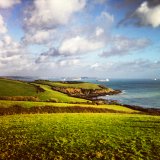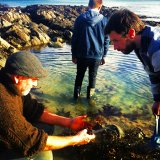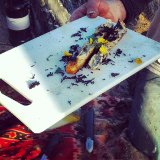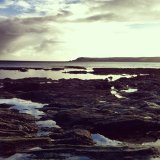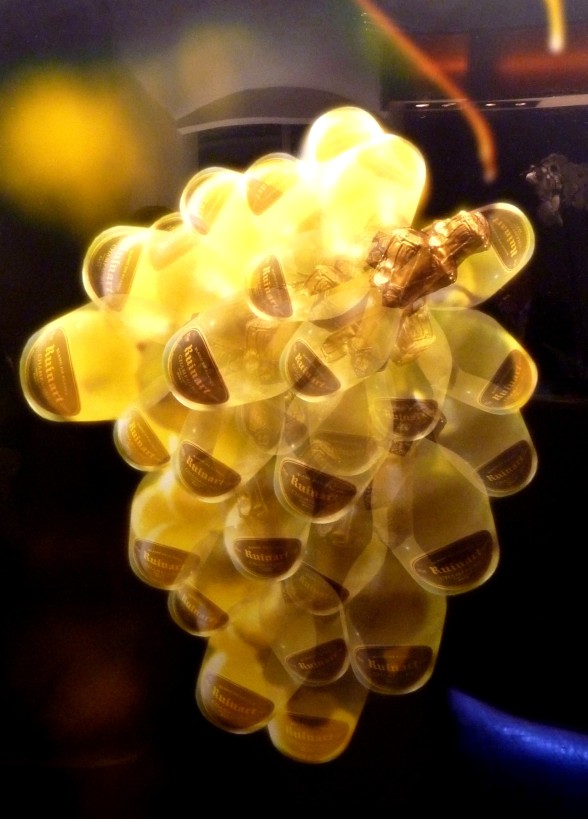One of our favourite local producers is Polgoon Cider Orchard & Vineyard, award-winning makers of wine, cider and fruit juices.
Polgoon is owned and operated by Kim and John Coulson. The couple previously ran a business in Newlyn, but in 2002 they bought a derelict farmhouse on the edge of Penzance and set about restoring it and the surrounding land. Now Polgoon occupies a series of sun-drenched slopes, home to lovingly-tended vines and apples trees as well as a tasting room and a store featuring other local produce.
 There are not many sites suitable for vines in this country. Luckily for Kim and John, their gentle south-south-east facing hillsides and well-draining soil is ideal. They had to choose grape varieties that grow well in the English climate, including Bacchus, Orion, Rondo and Pinot Noir, which is used in Champagne.
There are not many sites suitable for vines in this country. Luckily for Kim and John, their gentle south-south-east facing hillsides and well-draining soil is ideal. They had to choose grape varieties that grow well in the English climate, including Bacchus, Orion, Rondo and Pinot Noir, which is used in Champagne.
From these grapes they make white, rosé, red and sparkling wines. The vineyard has a relatively low yield due to the climate and it can be a risky business. For example, Kim remembers the 2007 growing season. “Rain in July and August destroyed the crop, the grapes literally rotted on the vines. That was really heartbreaking; there is nothing you can do!”
For several years, the fledgling vineyard weathered the storm, winning awards and loyal followers despite poor conditions for grape ripening. “We focused on careful vineyard management and keeping yields low,” explained Kim, “that is the way to keep quality high in tough years.” However 2013 finally brought sustained warm weather and plenty of sunshine – just what is needed to produce ripe grapes full of flavour. “Its an exciting time for Polgoon,” said John, “for the first time our tanks are full and the quality is again superb, I am really enjoying the winemaking and for the first time have a sparkling white wine nearing completion. The weather in 2013 was kind to us and we believe we will see some interesting and award winning wines again this vintage.”
As well as nurturing these vines into maturity, Kim and John also produce delicious apple juices and sparkling cider. The latter is made by allowing the cider to undergo a secondary fermentation in the bottle. The bottles need to be turned gradually, allowing the sediment to make its way to the neck. The sediment is then quickly ‘disgorged’ and the liquid is topped up and re-corked.
“We have over 400 apple trees,” said John, but the varieties that go into Polgoon Aval (Aval meaning ‘apple’ in Cornish) are a well-kept secret. At Porthminster we serve Sparkling Aval Raspberry – refreshing pink bubbles made by combining apples with a hint of raspberry.
Polgoon also produce a Perry and a Sparkling Elderflower, as well as juices.
You can visit the store at Polgoon or take a tour between March and October. Click here to find out more.





